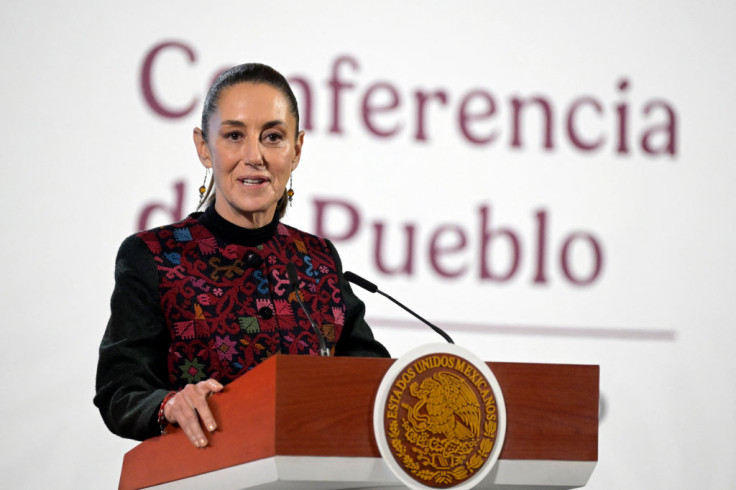
With billions of gallons of water still owed to the United States, President Donald Trump threatened to impose sanctions on Mexico if the country failed to comply with a 1944 treaty that that states the U.S. must receive 1.75 million acre-feet of water from the Rio Grande every five years.
With six months to go and still owing about two thirds of the total, Trump posted on his Truth social media account that his administration would continue implementing tariffs on Mexico and suggested the possibility of sanctions "until Mexico honors the Treaty." Less than 24 hours later, Mexican President Claudia Sheinbaum said her country doesn't have enough water but will make the payments "immediately."
During a regular morning presser, Sheinbaum addressed farmers in Texas by saying there will be "an immediate delivery of a number of millions of cubic meters" of water to the region, depending on how much water the Rio Grande has.
Sheinbaum said she hopes "the rainy season brings us more water so we can deliver more to the U.S" but did not specify the amount nor the date the water would flow up north.
Mexico's water commission CONAGUA has constantly argued that the country is not unwilling to comply, just unable to do so.
Figures from the office in late March show that the Amistad and Falcon Reservoirs are currently sitting at just 13.7% and 7.2% capacity, respectively. Similarly, other reservoirs along the border such as La Boquilla Dam in Chihuahua and Las Virgenes in Southern California are also sitting at a low capacity.
"We want to comply with the treaty – from which both countries benefit greatly. But we are in a drought situation made worse in recent years due to factors such as climate change," the official told Border Report.
When asked by a reporter if she believed Trump's threats of implementing additional sanctions, Sheinbaum said "no, I don't believe it. As we know, that is the way President Trump communicates," but added a binational working group is currently on top of the issue and will review "any technical aspects" of the treaty.
In the past, Manuel Morales secretary of CILA, the Mexican Section of the International Boundary and Water Commission (IBWC), has stated that "Mexico has an additional five years to make up the shortfall in addition to its next five-year cycle obligations" when drought conditions are present.
"There is a drought, a severe drought particularly in the Upper Rio Grande basin – the Conchos River. And that has contributed to Mexico experiencing a delay in its water deliveries," Morales said.
© 2025 Latin Times. All rights reserved. Do not reproduce without permission.







